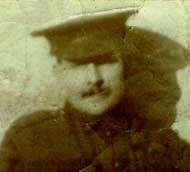
|
Feature page |
 Henry Gething was a local Fusilier (St Helens, Lancashire) who took the ‘King’s Shilling’ and enlisted on 5th July 1892 in Bury. He was then 19 years old. He was soon posted to barracks at Poona in India on 26th November 1892 where he remained until 1897 when he was transferred to Quetta.
On 10th January 1898 the battalion sailed from India to Egypt to see action at Omderman in Sudan. He was awarded the ‘Queen’s Sudan Medal’ and ‘Khedive’s Sudan Medal’ for service at Khartoum. In 1898/1899 the battalion moved to Crete and Malta where Henry remained in hospital. He saw out the end of this initial 7 years service in Malta before he was posted to Section B Army Reserve.
He was not home for long though and was recalled for service in South Africa on 13th November 1899 before eventually sailing to join the 2nd battalion on 14th February 1900. The 2nd battalion were part of the 11th Brigade in Sir Charles Warren’s 5th Division. For his part in the Second Boer War Henry was awarded the ‘Queen’s South Africa Medal’ with clasps for ‘Cape Colony’, ‘Orange Free State’, ‘Transvaal’ and ‘Laing’s Nek’; he also received the ‘King’s South Africa Medal’ with ‘1901’ and ‘1902’ clasps. On 4th July 1904 his service was over and he once again agreed to be transferred to Reserves this time Section D where he served until 10th August 1908.
Eventually Henry returned to St Helens, adjusted to civilian life,
married and had 5 daughters!
Henry died on 20th September 1920 with the delayed result of gas inhaled in the trenches and is buried in a Commonwealth War Grave in St Helens, Lancashire.
We are extremely proud of Henry and his service and commitment to his country. We are also, like he was, very proud that he made a conscious decision to become a Lancashire Fusilier. |
